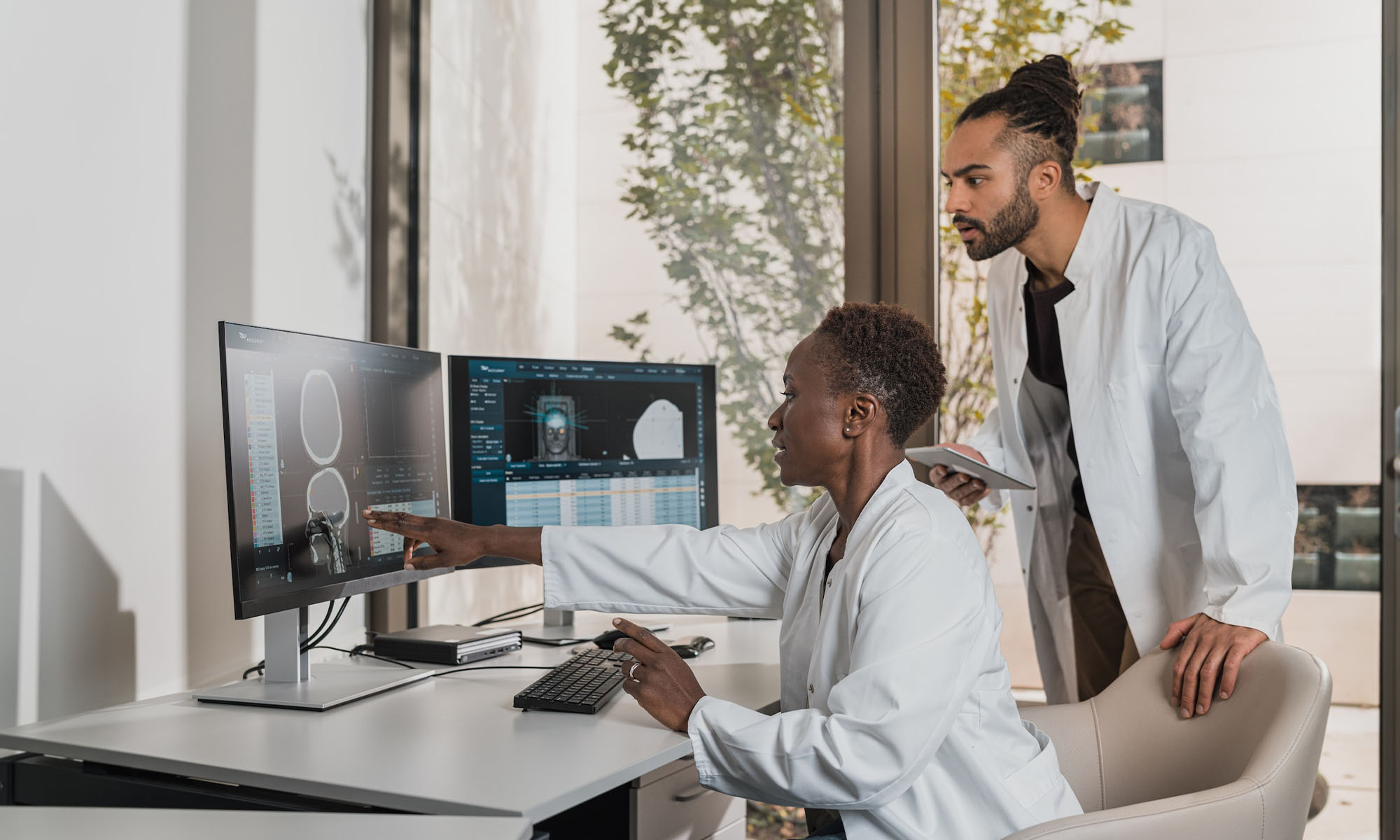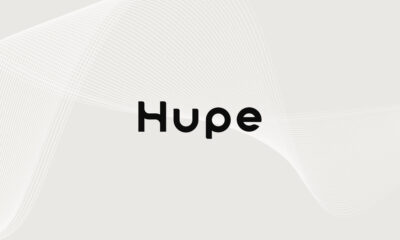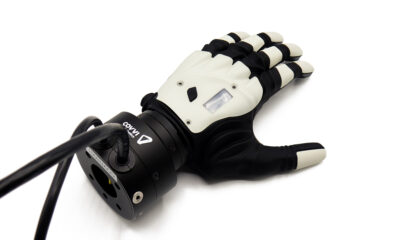News
New Tech Allows Faster Breast Cancer Detection In Middle East
Breast cancer is the most common form of the disease for women in the Arab world. But now, AI screening solutions, precision medicine and molecular imaging are fighting back.

An estimated 2.26 million women worldwide are diagnosed with breast cancer each year. In the Arab world, nearly 20% of all new cases turn out to be breast cancer, making this form of the disease the most common for women in the region.
To tackle this problem, several medical tech companies have developed screening tests to avoid misdiagnosis and late diagnosis. From AI to 3D imaging, each solution strives to improve the screening process, making it more accessible and affordable to Middle Eastern patients.
Early Detection Improvements
Mammogram diagnostics have evolved dramatically over the years. 3D scanning allows oncologists to detect small masses in dense breast tissue much earlier than traditional imaging tools allow.
“Using 3D mammograms, we can see lumps hidden within breasts accurately. By limiting the effect of covering the breast tissue, 3D mammography can make tumor detection easier. Looking into various pictures has helped specialists discover a larger number of cancer growths which was not possible with 2D scans,” says Dr. Timor Al-Shee, Surgical Consultant of Breast Oncology, King Faisal Specialist Hospital and Research Center, Saudi Arabia.
Despite their advancements, 3D mammograms are costly and still risk the possibility of false-positive results. To minimize unnecessary biopsies and increase the accuracy of decisions, researchers from New York University and NYU Abu Dhabi have devised a method to identify cancers using AI.
Devised by a team led by Farah Shamout, Yiqiu Shen and Jamie Oliver, the AI tool offers “radiologist-level accuracy” and promises to improve the consistency and efficiency of ultrasound diagnosis.
So far, the findings have been promising, with AI able to play a complementary role as a decision-making tool during the early stages of screening, aiding clinicians when forming a diagnosis.
Genetic Testing And Molecular Imaging
As well as 3D imaging and AI, genetic testing can also achieve reliable and accurate results. Although most breast cancers are not thought to be caused by inherited mutations, the tests can be helpful for women with a family history of breast cancer.
“The UAE uses the latest technologies to drive innovation in healthcare. We are part of the DoH-led Personalized Precision Medicine Programme for oncology in the region that specifically targets breast cancer. The treatment is based on a patient’s genetic makeup and genetic changes in cancer cells,” says Dr. Fahed Al Marzooqi, COO of G42 Healthcare.
Molecular breast imaging, on the other hand, can be used alongside a mammogram and involves a radioactive tracer with a nuclear medicine scanner. The tracer is injected into a vein, and if cancer cells are detected, the tracer will light up.
As well as helping to diagnose cancers earlier, these new technologies could also be used to tailor precision medicines for treatment. Scientists already know that breast cancer is treatable if spotted early, so it seems that the future of cancer medicines is all about evaluation — from genes and environment to lifestyle factors. Meanwhile, technological advances are beginning to allow oncologists to tailor highly individual treatment plans for patients.
News
Alienware Just Announced Six New Gaming Monitors
The new models include three QD-OLED and three budget-friendly QHD options, expanding the company’s lineup for all gamers.

Alienware has just updated its gaming monitor lineup with six new additions, including the highly anticipated Alienware 27 4K QD-OLED Monitor. The latest wave of releases is set to reach more gamers than ever, offering high-end QD-OLED displays alongside more budget-friendly options.
The latest displays clearly show that the company is doubling down on QD-OLED with three new models sporting the technology. A redesigned Alienware 34 Ultra-Wide QD-OLED Monitor is also making a return, further refining what is already a fan-favorite display.
A Unified Design: The AW30 Aesthetic
All six monitors feature Alienware’s new AW30 design language, first introduced at CES. The AW30 aesthetic brings a futuristic, minimalist look that unites the entire lineup under a cohesive visual identity.
Pushing QD-OLED Even Further
The refreshed Alienware 34 Ultra-Wide QD-OLED Monitor (AW3425DW) builds on its predecessor’s success with a 240Hz refresh rate (up from 175Hz) and HDMI 2.1 FRL support. It also gains G-SYNC Compatible certification alongside AMD FreeSync Premium Pro and VESA AdaptiveSync, ensuring ultra-smooth performance. With a WQHD (3440×1440) resolution and an 1800R curve, this display enhances immersion for both gaming and cinematic experiences.
For those who crave speed, the Alienware 27 280Hz QD-OLED Monitor (AW2725D) pairs a high refresh rate with QHD resolution, balancing sharp visuals with ultra-smooth gameplay. Meanwhile, the Alienware 27 4K QD-OLED Monitor (AW2725Q) delivers stunning clarity with an industry-leading pixel density of 166 PPI, making it the sharpest OLED or QD-OLED monitor available.
Also Read: Infinite Reality Acquires Napster In $207 Million Deal
Worried about OLED burn-in? Alienware’s entire QD-OLED lineup comes with a three-year limited warranty covering burn-in concerns, offering peace of mind for gamers investing in these high-end displays.
Bringing QHD To A Wider Audience
Alongside QD-OLED, Alienware is also releasing three new QHD gaming monitors aimed at more price-conscious gamers. The Alienware 34 Gaming Monitor (AW3425DWM), Alienware 32 Gaming Monitor (AW3225DM), and Alienware 27 Gaming Monitor (AW2725DM) provide a range of sizes and formats to suit different preferences:
- The Alienware 34 Gaming Monitor (AW3425DWM): An ultrawide (WQHD) option for a panoramic, immersive experience.
- The Alienware 32 Gaming Monitor (AW3225DM): A standard 16:9 panel for a traditional but expansive desktop setup.
- The Alienware 27 Gaming Monitor (AW2725DM): A 27” display offering the same performance in a more compact form factor.
All three gaming monitors feature a fast 180 Hz refresh rate, a 1ms gray-to-gray response time, and support for NVIDIA G-SYNC, AMD FreeSync, and VESA AdaptiveSync to eliminate screen tearing. Additionally, with 95% DCI-P3 color coverage and VESA DisplayHDR400 certification, these displays deliver vibrant colors and high dynamic range for lifelike visuals.



























